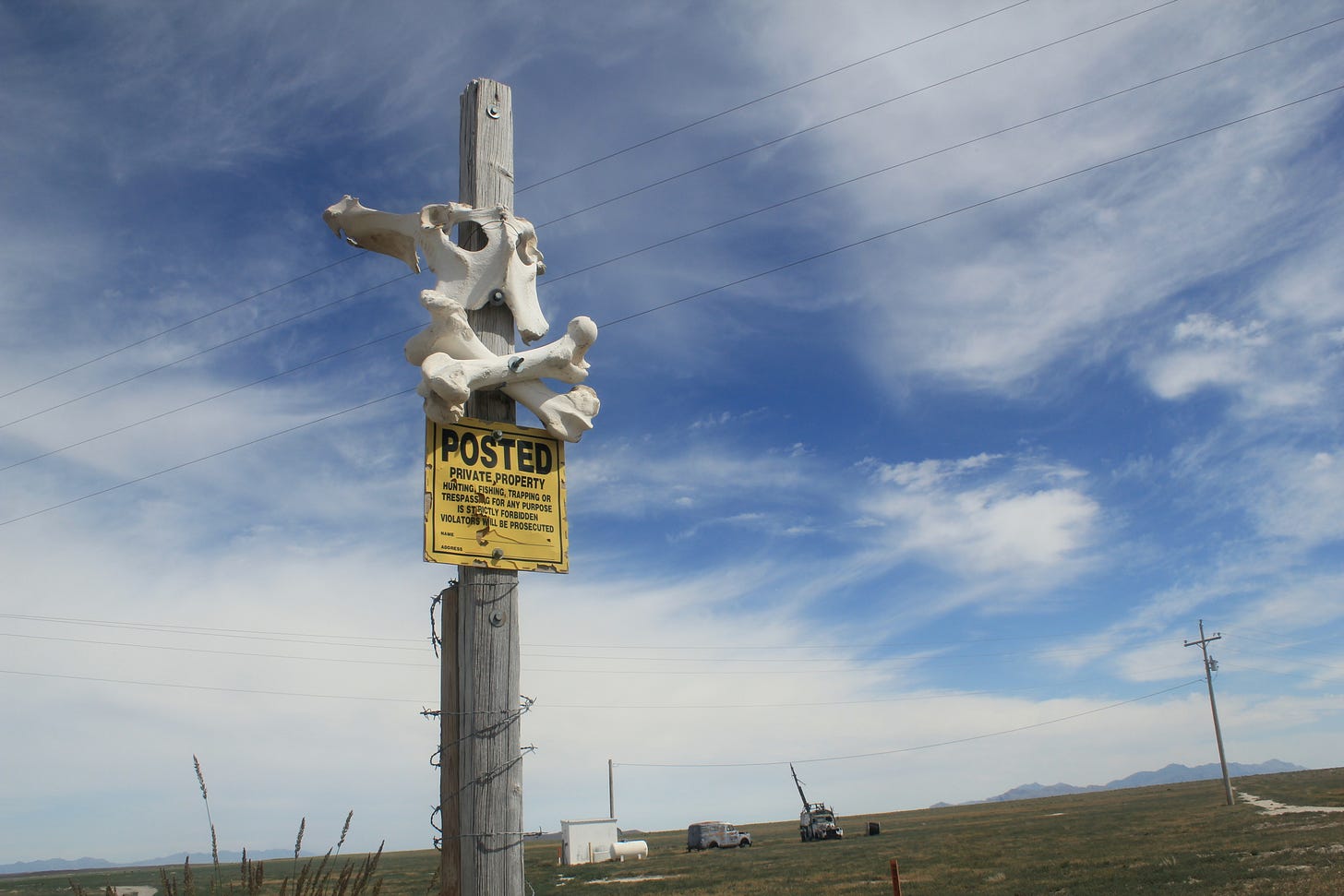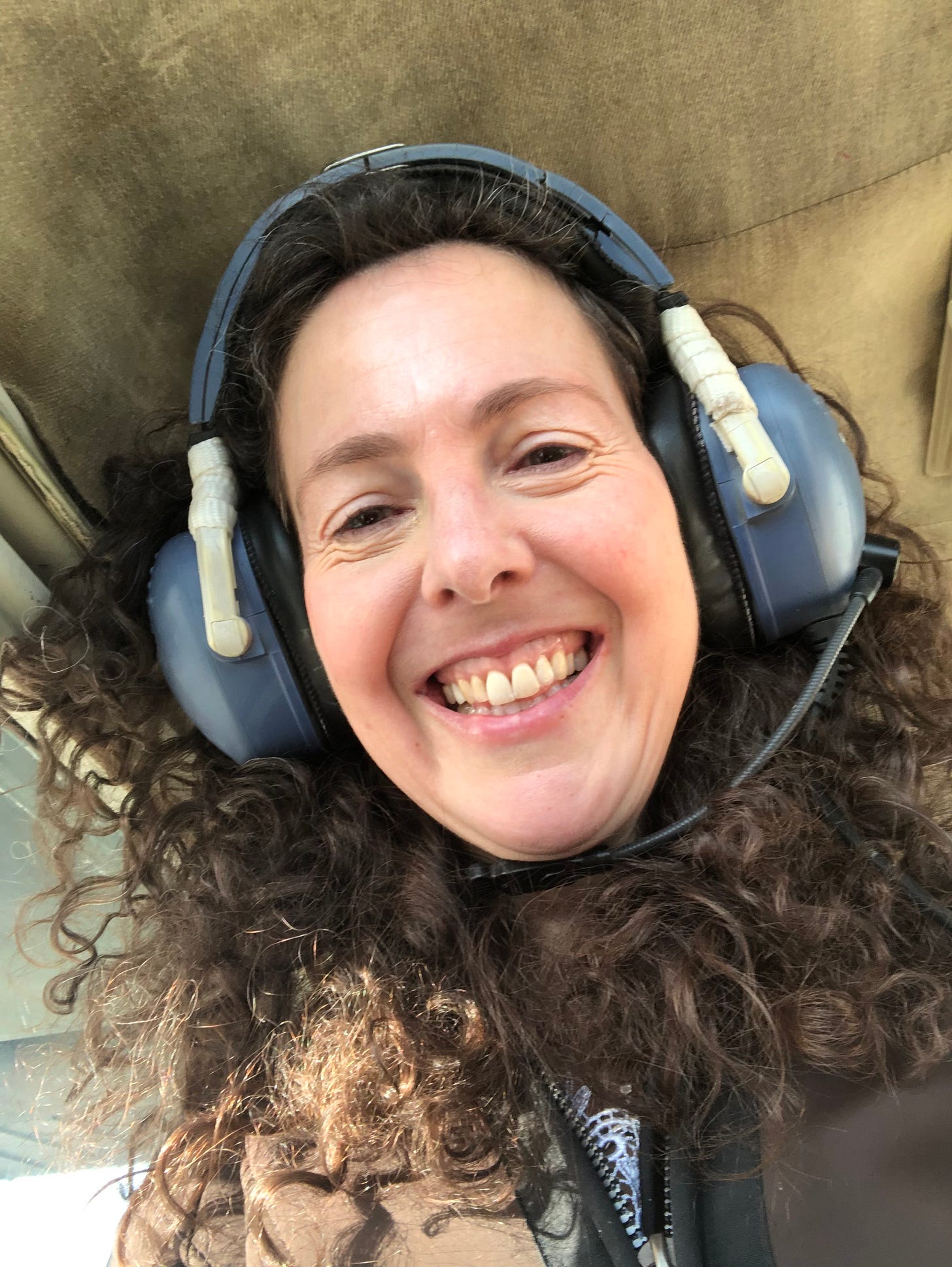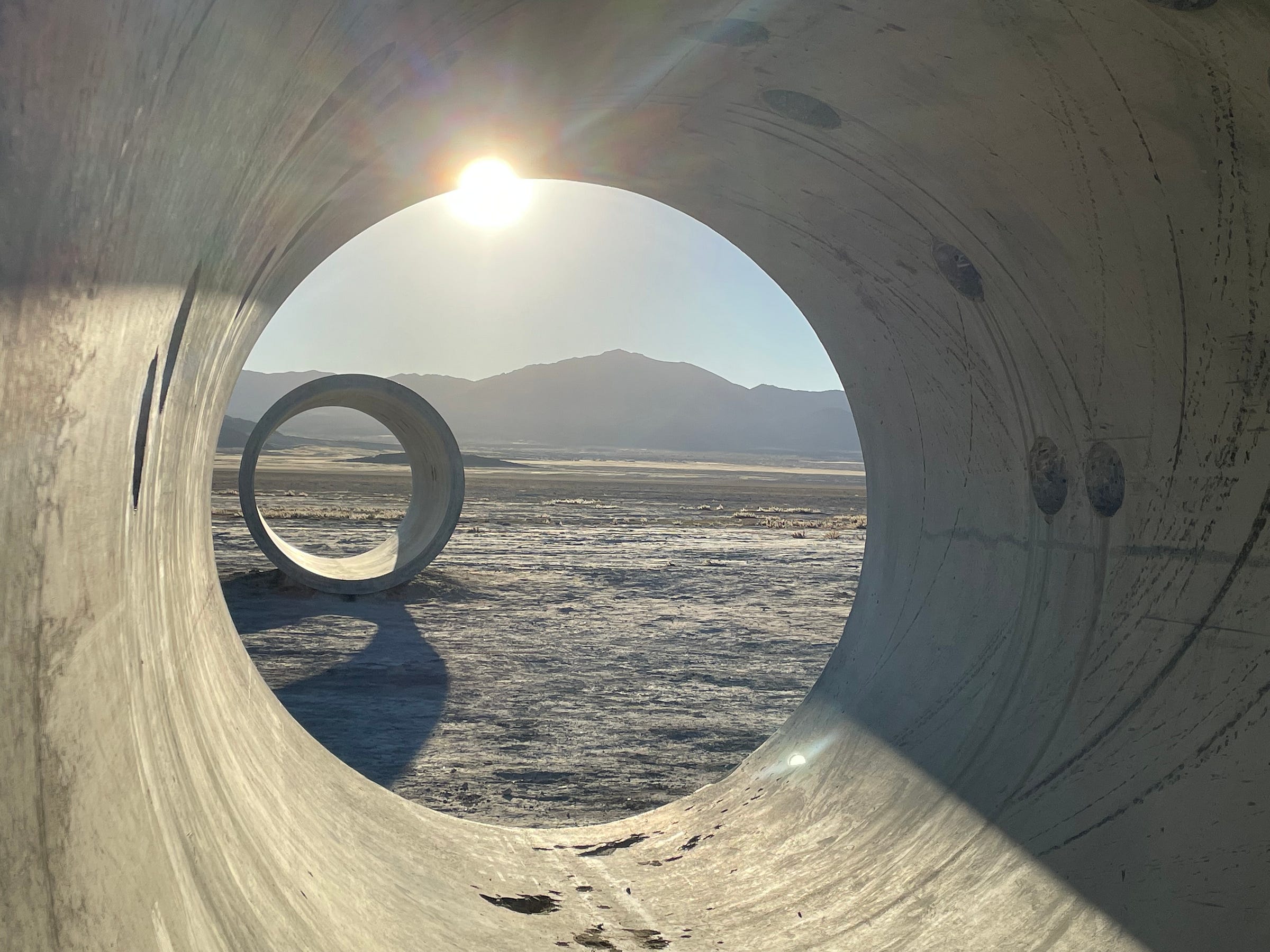How an Aviating Loner in a Ghost Town Helped Me Rediscover Freedom
Out here in the Great Basin where we prefer vast, uninhabited landscapes, I met a hermit named Ivo whose ingenious escape story left me astonished and inspired.
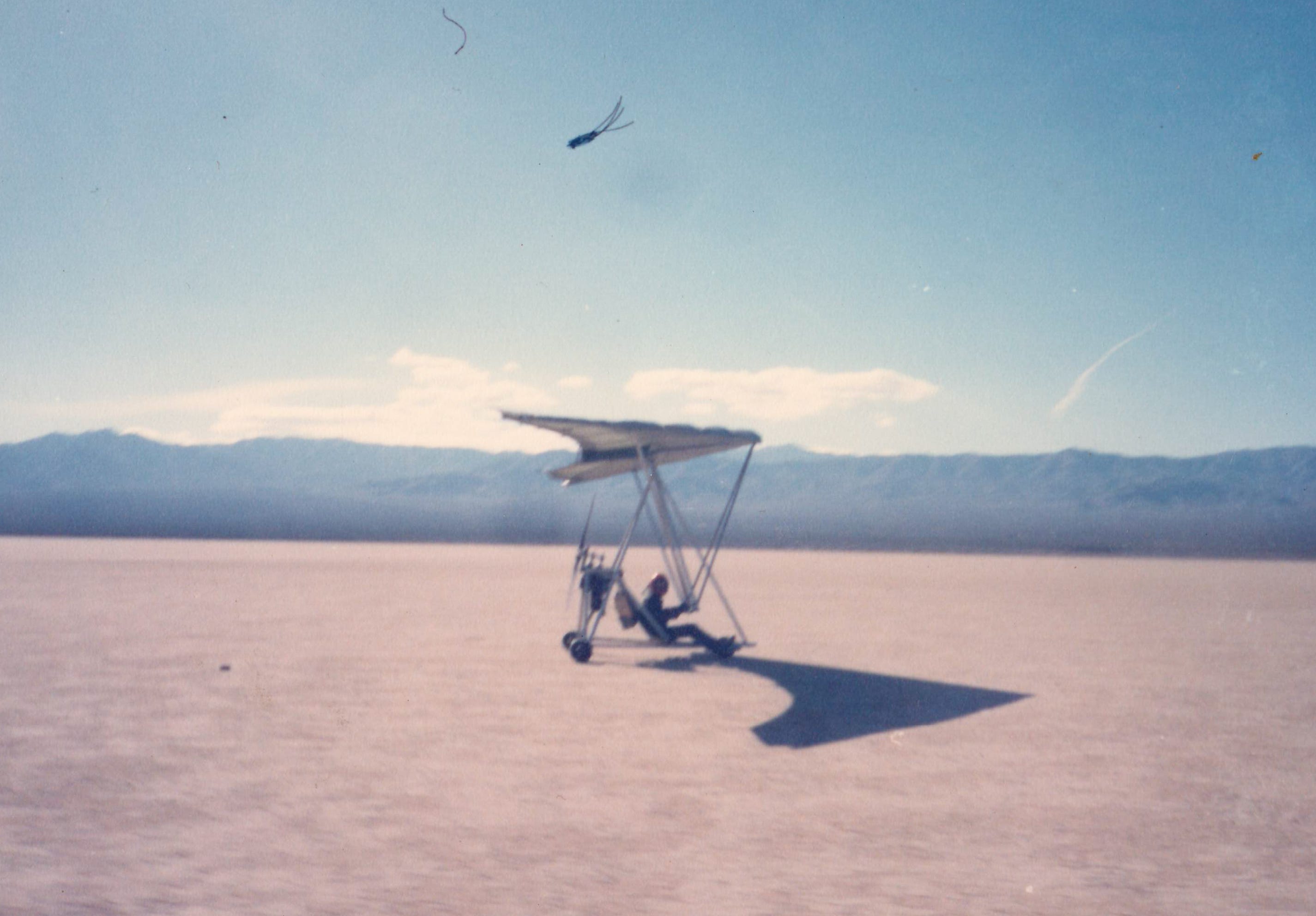
A prehistoric lakebed. Former islands stranded high and dry on the desert. A ghost town. An abandoned militia camp. A landscape so incomprehensibly vast that a distant train whistle is often the only thin signifier of human existence.
Welcome to almost uninhabited Lucin, Utah, home of Ivo Zdarsky. Ivo is a hermit, an aviator and a refugee from former Communist Czechoslovakia, as well as the subject of my recent Narratively story, “The Man Who Pierced the Iron Curtain in a Flying Go-Kart – and Left Civilization Forever” (a finalist for Narratively’s inaugural Profile Prize), which debuted on Thursday. In 1984, at the age of 24, Ivo became the first person to successfully escape the Communist Eastern bloc in a homemade aircraft, a motorized glider he MacGyvered together out of a two-stroke car engine, motorcycle gas tank and wheelbarrow wheels.
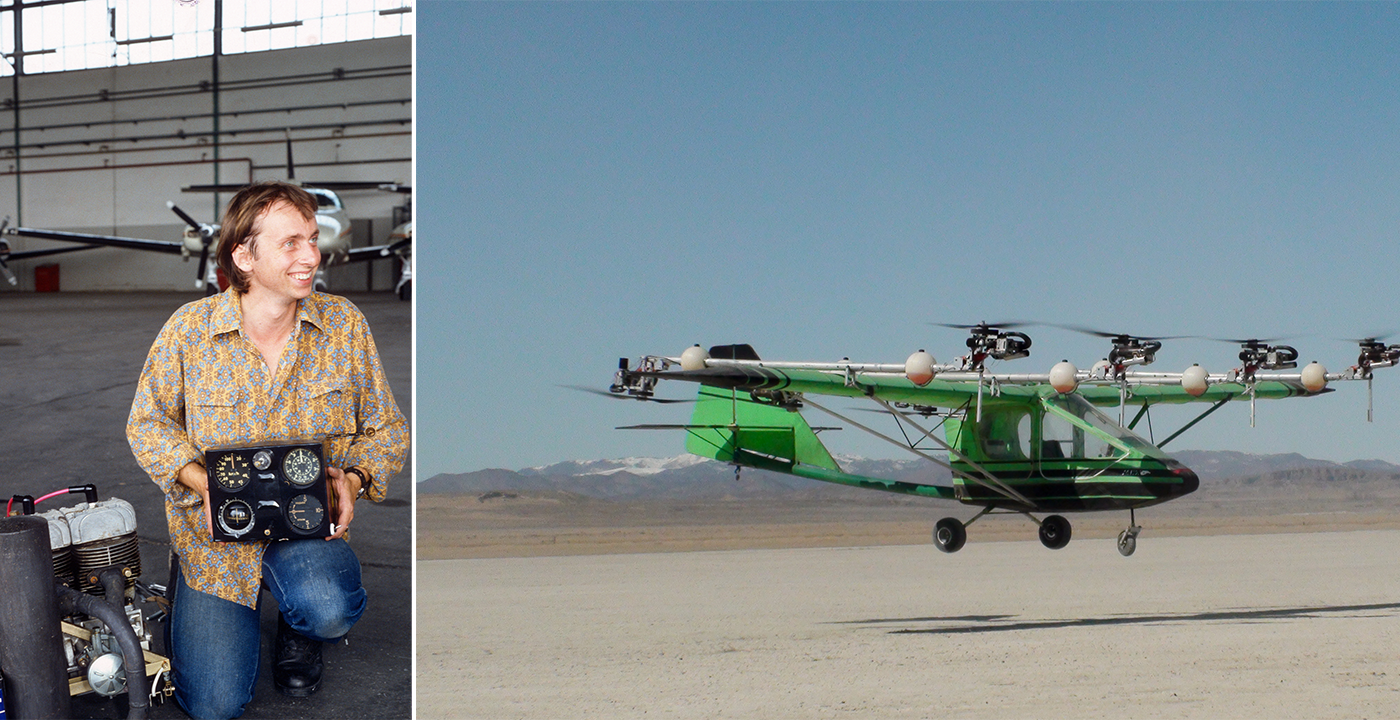
After claiming asylum in the United States, he founded an aviation company, explored an astonishing amount of the West by plane and helicopter, and then, in his own radical experiment in personal freedom, abandoned society to live in the utter desolation and stillness of Utah’s West Desert. Out here in Lucin, Ivo lives alone in his own airport. He discourages curious visitors with a perimeter fence and “No Trespassing” signs which, in case you missed the point, he has embellished with actual crossed bones.
When I stumbled upon a brief local news article about Ivo last year, I was seized by that gnawing and obscure curiosity that I imagine compels other nonfiction writers who harbor an appetite for extreme outliers in the human variety show. What made Ivo’s story particularly compelling for me was that he was my neighbor. At least, he was a neighbor in the extended sense that’s in currency here in thinly settled parts of the West, where an easy distance can represent hours behind the wheel. The revelation that a mere two-hour drive from my cluttered desk in Elko, Nevada, a solitary Bohemian guy was rattling around in an airport on a prehistoric lakebed tinkering around with flying machines was beyond any ability of mine to resist. I had to find out who he was, how he got there, and above all — why?
I could not have known that my meeting with Ivo would soon have me aloft in his beloved Cessna Skyhawk, skimming humpback mountains and a fossilized coral reef, and that flying with Ivo would deliver a form of pure joy I hadn’t experienced in longer than I care to admit. “It’s like drugs,” Ivo told me of flying, “dangerous and expensive,” but also, quite clearly, nourishing, vital, euphoric.
This story turned out to be as much about place as it was about a person. The region of the West where Ivo and I live is called the Great Basin. It’s a massive but sparsely populated stretch of country that subsumes northern and central Nevada, southeast Oregon and western Utah. Not a drop of water from within the Great Basin ever reaches the Atlantic or Pacific Ocean, while its unforgiving sagebrush deserts and obscure mountain ranges were a guarantee the region would remain terra incognita on maps of the lower 48 states for years after the rest of the country’s whereabouts were a settled business. Today, of course, every pebble of the U.S. has been surveyed to a fare-thee-well, but even so, the basin remains remote. And elusive. Don’t trust Google Maps away from our main towns and highways. Carry food, water, a tow strap and a shovel — just in case. The people who dwell in the scattered ranching communities and mining towns out here are proud of their independence and live apart by choice. Of course, there are those who take the isolation this landscape affords to another level entirely. The Great Basin’s deserts are a refuge for outcasts, outliers and loners of every variety — from the solitary artist to the bunker-building survivalist.
I found that Ivo’s chosen homesteading site of Lucin, Utah, amplified all that makes the Great Basin strange, eerie and sublime. His airport home is a minuscule island on a remote dry lakebed on the edge of a boundless inland sagebrush sea. Beautiful and forsaken, it is one of those few places in our country where an experiment in isolated freedom like Ivo’s could be realized. In fact, there is an elegant logic to his flight path. Ivo’s unflinching courage and indomitable drive to live according to his own unconventional ideas ferried him across the Iron Curtain and, ultimately, set him down in this far-flung, vacant landscape — where every day is Independence Day.
Buckle-up and enjoy my story about this truly singular character.
“A man can be himself only so long as he is alone; and if he does not love solitude, he will not love freedom; for it is only when he is alone that he is really free.” - Arthur Schopenhauer
Andy Rieber is a freelance writer whose work focuses on people and their relationship to history and landscape. Her writing for The Wall Street Journal, Wired, High Country News, American Cowboy and Craftsmanship has given her a national audience. Based in Elko, Nevada, Andy is also a photographer, public speaker and consultant.


